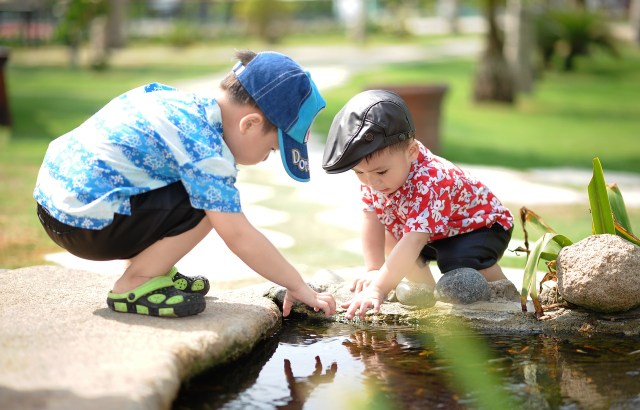The road to the ivy league doesn’t include hours on end of random block play and kid-created dress-up games. Right? Um, maybe not. Sometimes letting kids be kids is what children really need. So why is unstructured play so important? While there’s no easy answer to this question, filling your tot’s schedule with ballet classes, soccer games, tennis lessons and every other program that child shows even a moderate amount of interest in may not be the key.
Hey, letting your kiddo explore their interests is never a bad thing. That is, unless their interests include cliff diving or something equally as scary. Even though a class or two can do plenty of good, when the handful of activities that your child picks out turn into three different lessons a day that you choose, something might be…um, off.
Photo: Free-Photos via Pixabay
So why cut down on the classes and up your kiddo’s unstructured play time? Giving your child time to just play may boost your little one’s creativity. Think about what happens when you step back and let your child lead when it comes to creating engaging activities. Chances are they’ll kick their imagination into high gear and problem-solve a solution to the “What should I do now mommy?” dilemma.
Along with increasing creativity, unstructured play may help your kiddo to develop social skills. If your child is playing with their peers, they’re navigating the social waters and building communication, sharing and turn-taking skills.
What can you do to help your child play? Well, the answer isn’t to schedule unstructured play time. Instead, take the opposite approach. Stop scheduling everything, and just let your child be. Don’t worry, they’ll figure out something to do!
—Erica Loop
Featured Photo: HaiRobe via Pixabay
RELATED STORIES:
When Kids Have Fewer Toys They’re More Creative, New Research Finds
Before You Shut Off Your Kid’s Tablet or TV for the Day, Read This
Is There a Link Between How Much & How Well Kids Read? Science Thinks So
